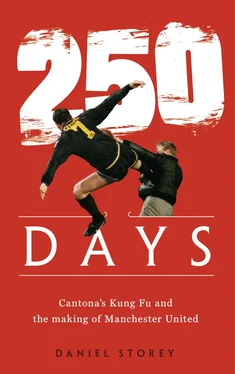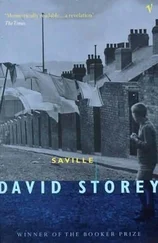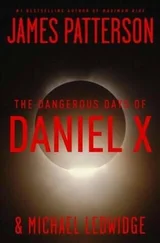Cantona preferred a different method. He started as a nominal strike partner – usually to Mark Hughes or Andy Cole – but dropped deep in between the lines of defence and midfield, dragging immobile central defenders out of their position and comfort zone. Cantona’s technical expertise allowed him to link play effectively, and he became as renowned for his chance-creation as his finishing. Cantona is credited with 56 assists in 156 Premier League games. The only other strikers of his era to register more – Cole, Alan Shearer and Teddy Sheringham – all played at least 250 more matches.
Conversely, Cantona’s talent could never have been so influential without personality. Cantona was a leader of Manchester United not just because of his talent, but through sheer strength of character. As Roy Keane so eloquently put it: ‘Collar up, back straight, chest stuck out, he glided into the arena as if he owned the f***ing place. Any arena, but nowhere more effectively than Old Trafford. This was his stage. He loved it, the crowd loved him.’
Cantona’s unwavering self-belief – it bordered on swaggering arrogance – was not a natural trait, but a deliberate tool of his success. ‘I’ve said in the past that I could play single-handedly against eleven players and win,’ he wrote in Cantona on Cantona . ‘Give me a bicycle and I believe I can beat Chris Boardman’s one-hour record.’ In Cantona’s psyche there was no room for doubt. Doubt is what leads to fear, and if fear cannot be controlled it eventually defeats you.
The Cantona effect at Manchester United became extraordinarily influential, but he was doubted when he joined. In hindsight, Leeds and their manager Howard Wilkinson are mocked for letting Cantona go, but they made a profit on the transfer fee they had paid to Nîmes less than 12 months earlier and had endured a rocky relationship with the Frenchman. Cantona failed to click with striker Lee Chapman, and later revealed his unhappiness at Elland Road. Wilkinson did the same: ‘Eric is not prepared to abide by the rules and conditions which operate for everybody else here.’
‘I had a bad relationship with the manager, Wilkinson,’ Cantona told FourFourTwo in 2008. ‘We didn’t have the same views on football. I am more like a Manchester footballer. At Leeds, football was played the old way – I think you say kick then rush. If I don’t feel the environment is good, I don’t want to be there.’ Cantona is right to some extent, but underplays his own role in United’s ‘new way’.
Senior Manchester United players Gary Pallister, Steve Bruce and Bryan Robson all raised significant concerns among each other and to the club about Cantona’s reputation for upsetting team morale, but Lee Sharpe was the most candid. ‘This bloke’s a total nutter, what are we doing?’ he is quoted as saying. The national media were hardly warm in their congratulations to Ferguson for his signing.
But Ferguson realised that his club needed a shot in the arm. They had finished second to Leeds the previous season, but sat eighth in the table with summer signing Dion Dublin out injured. Ferguson’s team had won two of their previous 13 matches, and there were lingering doubts over the Scotsman’s job security. United had not won the league title for 25 years.
Ferguson spoke to then-France national team manager Gérard Houllier for advice on Cantona, but also leant on Michel Platini and journalist Erik Bielderman for their input. The conclusion from all three was that Cantona needed a father figure, while Ferguson needed a new leader. Both men fitted the other’s need perfectly. Cantona only had problems with authority when he did not respect it.
His impact was instantaneous. Manchester United won eight and drew two of his first ten league games, and the split across the whole of 1992/93 is striking: 1.5 points per league game before his arrival and 2.3 points per league game afterwards; 1.06 goals per league game before his arrival and 1.92 goals per league game afterwards. From being eighth in the league and nine points from the top, United finished the season as league champions, with a ten-point cushion to second place.
Alongside the results, Cantona changed the mood too. By New Year’s Day 1993 Ferguson was publicly enthusing about Cantona’s effect on every element of Manchester United. ‘More than at any time since I was playing, the club is alive,’ he said. ‘It’s as if the good old days are back and the major factor, as far as I’m concerned, is the Frenchman.’
Manchester United’s former greats lined up to pour on praise. ‘I can’t think of anyone who I would rather wear my crown,’ said Denis Law. George Best was even more effusive: ‘I would pay to watch Cantona play. There are not many players over the years I would say that about. He is a genius.’ Old Trafford had its new king.
But the appeal of Cantona lay not just in his achievement, but also the controversy. Like another famous No. 7 at Manchester United who courted headlines off the pitch as much as on it, Cantona’s misdemeanours did not detract from his legacy; they cemented it. Cantona’s popularity with supporters is explained very simply: he was one of them. Here was a superstar, but with the flaws of Everyman laid proudly bare for all to see.
Never were those flaws more exposed than at Selhurst Park on 25 January 1995. Cantona’s acrobatic assault on Matthew Simmons provoked one of the longest bans for an on-pitch offence in the history of English football, and created a media circus the like of which the sport had never witnessed. Moreover, it threatened to force Cantona’s departure from England in the same manner in which he had left France, ignominy trumping all else. Had this happened, Cantona’s reputation at Old Trafford would have been very different.
Ferguson risked his own reputation over Cantona, but also acceded to him. This is captured in one memorable Steve Bruce anecdote. The squad were invited to Manchester Town Hall for a civic reception, and required to wear club suits. Cantona turned up wearing flip-flops, ripped jeans and a long, multi-coloured coat. As captain, Bruce was instructed to tell the manager that several players weren’t happy with Cantona’s appearance, believing it to be disrespectful.
‘Fergie’s on the red wine,’ Bruce recalls. ‘He puts down his glass, looks over at Eric. “Tell them from me, Steve,” he says, “that if they can play like him next year, they can all come as fucking Joseph too.”’
So when Cantona did step out of line so spectacularly in January 1995, Ferguson inevitably felt let down and wrestled with his own moral compass as well as what was best for Manchester United. In sticking by his man, Ferguson doubled down his trust in an enigma when others in his position would have taken an alternative – and easier – route. It proved to be a masterstroke.
For all the focus on Cantona during the 250 days between kung-fu kick and return to the pitch, Manchester United changed too. Ferguson started an evolution that began with a mini-revolution: senior players were sold but not replaced, while extraordinary faith was placed in a crop of prodigious young talent. During that summer, with Manchester United neither the reigning Premier League nor FA Cup champions, Ferguson would have his judgement called into question. The great manager even admitted to doubting himself. That didn’t happen often.
The ‘Class of 92’, as they would be nicknamed in hindsight, were already on the fringes of United’s first team when Cantona assaulted Simmons, but Ferguson brought them to the front and centre of his vision in the Frenchman’s absence.
Cantona’s role in that process has been too easily overlooked. His ban enabled him to play tutor and mentor to a wonderful generation of academy graduates. In turn it helped establish Ferguson’s first dynasty as Manchester United manager.
Читать дальше












